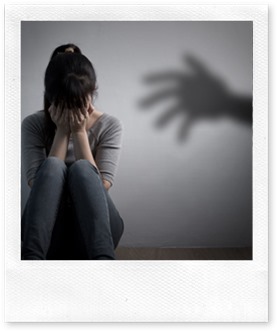Sexual assault and harassment are not new to women, but the attention, insights, conversations and strategies to address this is much more on everyone’s minds these days. I’ve been wondering how I might be able to discuss this in my blog, and while I imagine I will look for ongoing ways to do this, this study on hot flashes in which more than 20% of the women had reported having experienced sexual assault, caught my attention.
This study found some other connections between sexual assault or harassment as a risk factor for  cardiovascular and metabolic diseases. The study asked the following questions: Have you ever experienced sexual harassment at work that was either physical or verbal? And have you ever been made or felt pressured into having some type of unwanted sexual contact? Women were ages 40-60.
cardiovascular and metabolic diseases. The study asked the following questions: Have you ever experienced sexual harassment at work that was either physical or verbal? And have you ever been made or felt pressured into having some type of unwanted sexual contact? Women were ages 40-60.
One in five of the women (19%) reported having experienced workplace sexual harassment and 22% reported having been sexually assaulted, and 10% had experienced both. Women who were harassed were more likely to have a higher education degree and be under financial stress.
Women who had been sexually harassed were more than twice as likely as those who had not to have stage 1 or 2 hypertension,(a BP of at least 130/80), almost twice as likely to have chronic insomnia (contributing to anxiety/depression, fatigue, injuries, concentration, work performance) and more likely to have depressive and anxiety symptoms.
It might seem obvious, but still worth pointing out, that women suffering from anxiety and/or depression, including those working or living in an abusive situation are more likely to engage in unhealthy behaviors such as medication misuse, smoking, excess alcohol, poor eating habits and being more sedentary.
The results of this study can help remind all of us as to the cascade of effects of sexual harassment and sexual assault, but not just in the psychological realm. We need to expand our thinking into the relationship to obesity, hypertension, cardiovascular disease and diabetes.
If you are a health care provider, it’s important to ask women about their history of sexual harassment and assault. If you are a woman in need of care, please communicate with those you know and trust, as well as your health care provider. Those past, let alone current experiences, have and may continue to have health implications that we can help to prevent. Holding the trauma, the secrets, and often the shame, is not only potentially causing you harm, it is no longer necessary to do so. There are people who want to and can listen and help with the healing.
Reference: Thurston R, et al. Presented at the North American Menopause Society (NAMS) 2018 Annual Meeting, October 5, 2018.

